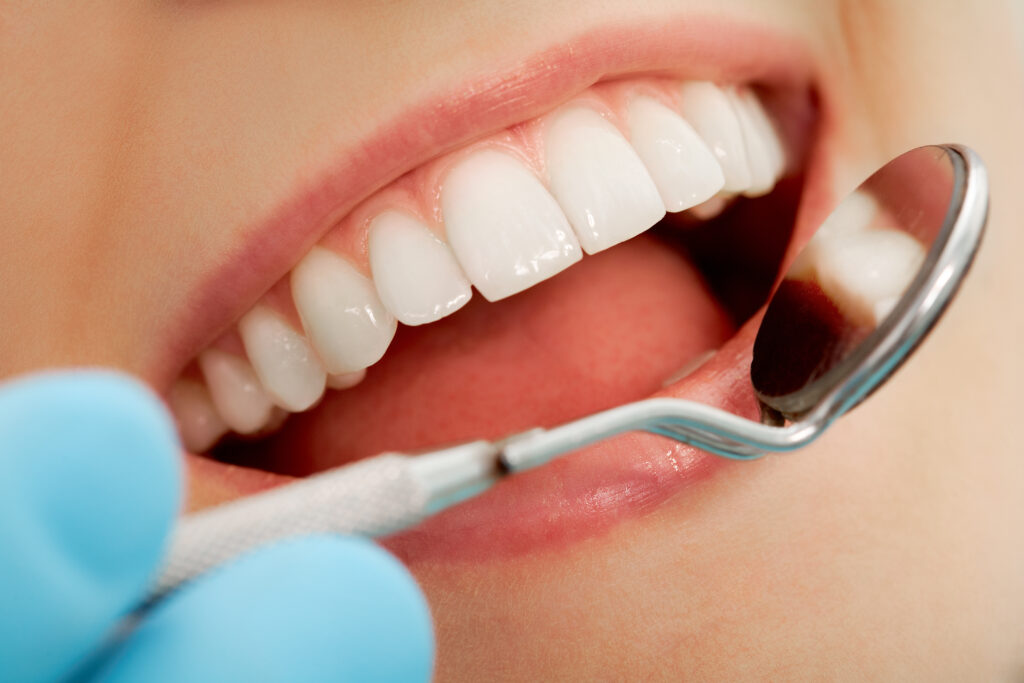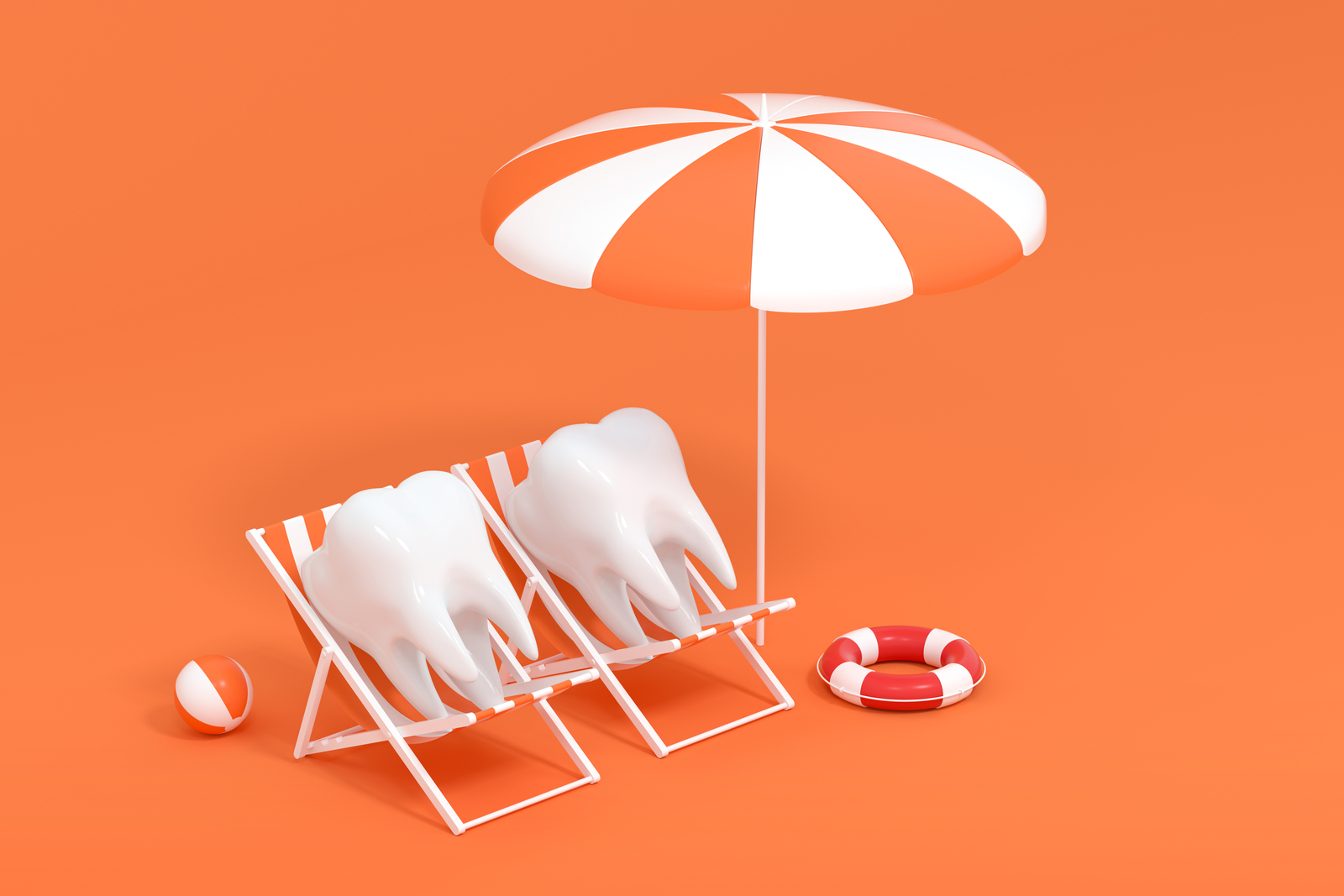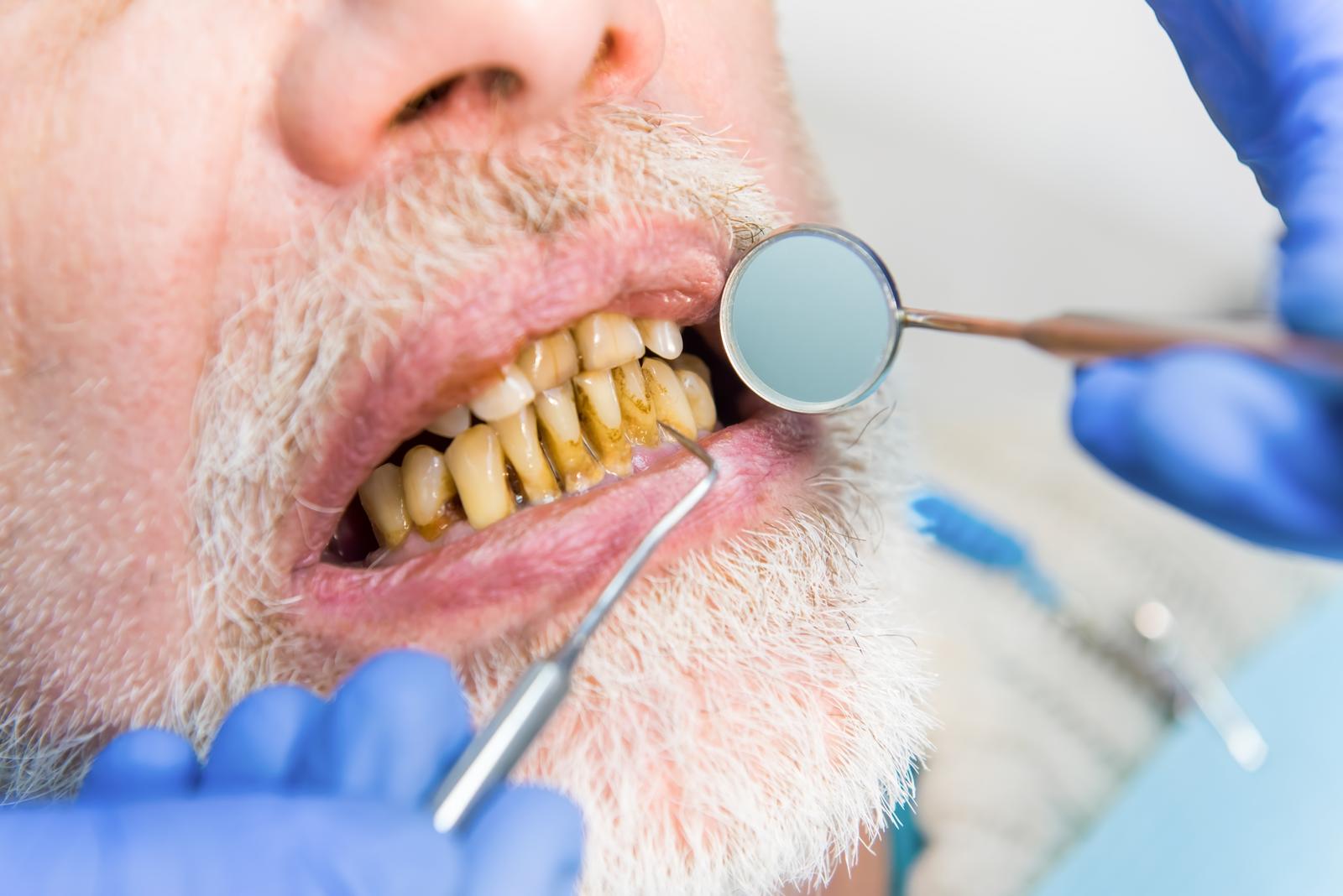Dental infections can be painful and frustrating to deal with. Whether you’re experiencing a toothache or swelling in your gums, knowing how to prevent and treat dental infections can help you maintain optimal oral health. In this article, we’ll discuss the causes of dental infections, how to prevent them, and explore different types of treatments available.
One of the leading causes of dental infections is poor oral hygiene, which can lead to an accumulation of bacteria in the mouth. If left untreated, that bacteria can cause inflammation and infection, leading to pain, discomfort, and sometimes even tooth loss. It’s important to brush your teeth twice a day, floss regularly, and visit your dentist for regular check-ups to prevent dental infections from occurring.
Understanding Dental Infections
Dental infections are caused by bacteria that enter your mouth and can affect your teeth, gums, and surrounding bone tissue. They can occur in anyone, regardless of age or dental hygiene habits.
There are two main types of dental infections: tooth abscess and periodontal abscess.
Tooth Abscess
A tooth abscess is a pus-filled sac that forms inside your tooth or at the root of the tooth. It can cause severe pain, swelling, and sensitivity to hot or cold temperatures. Tooth abscesses are typically caused by tooth decay or injury to the tooth.
Periodontal Abscess
A periodontal abscess is a pus-filled sac that forms on your gum tissue near the root of your tooth. It can cause pain, swelling, and bleeding gums. Periodontal abscesses are typically caused by gum disease.
Symptoms of Dental Infections
The symptoms of dental infections vary depending on the type and severity of the infection. Some common symptoms include:
- Severe pain in the affected tooth or area
- Swelling or redness in the affected area
- Sensitivity to hot or cold temperatures
- Fever and fatigue
- Difficulty chewing or swallowing
- Headache or facial pain
Causes of Dental Infections
Dental infections are caused by bacteria that enter your mouth through a variety of ways. Some common causes include:
- Poor dental hygiene
- Tooth decay
- Gum disease
- Trauma to the tooth
- Weakened immune system
Treatment of Dental Infections
If you suspect that you have a dental infection, it’s important to see your dentist right away. Treatment may include:
- Antibiotics to kill the bacteria causing the infection
- Drainage of the abscess
- Root canal treatment
- Extraction of the tooth
Preventing dental infections is key to maintaining good oral health. Practice good dental hygiene habits such as brushing and flossing regularly, avoiding sugary and acidic foods, and seeing your dentist for regular checkups and cleanings.
Causes of Dental Infections
Dental infections can be caused by a variety of factors. Understanding the most common causes can help you take the necessary steps to prevent them. Here are some of the most prevalent causes of dental infections:
1. Poor Oral Hygiene
One of the main causes of dental infections is poor oral hygiene. If you don’t brush and floss your teeth regularly, food particles can accumulate in your mouth, leading to the formation of plaque and tartar. This can irritate your gum tissue and cause inflammation, which can eventually lead to an infection.
2. Tooth Decay
Tooth decay is another common cause of dental infections. When bacteria in your mouth break down the sugars and starches in your food, they produce acid that can erode your tooth enamel. This can lead to cavities, which can expose the inner layers of your teeth to bacteria and cause an infection.
3. Gum Disease
Gum disease, also known as periodontal disease, is a serious infection of the gums that can lead to tooth loss if left untreated. This condition is caused by a buildup of plaque and tartar on your teeth, which can irritate your gum tissue and cause inflammation. If left untreated, gum disease can progress to an advanced stage, where bacteria can infect the bone and tissue that support your teeth.
4. Trauma
Trauma to your teeth or gums can also cause a dental infection. If you have a cracked or broken tooth, for example, bacteria can enter the inner layers of your tooth and cause an infection. Similarly, if you have an injury to your gums, this can also create an entry point for bacteria.
5. Compromised Immune System
If your immune system is compromised, you may be more susceptible to dental infections. This can be caused by a variety of factors, such as HIV/AIDS, cancer treatments, or certain medications. If you have a weakened immune system, it’s important to take extra precautions to prevent dental infections.
By understanding the common causes of dental infections, you can take steps to prevent them. Maintaining good oral hygiene, getting regular dental checkups, and seeking prompt treatment for any dental issues can help you protect your teeth and gums from infection.
Symptoms of Dental Infections
Dental infections occur when harmful bacteria enter the tooth or gum tissue, leading to bacterial growth and inflammation, which can cause pain, pus formation, and other unpleasant symptoms. The following are some common symptoms to watch out for:
1. Dental Pain
Severe, persistent pain around the affected tooth or gums is one of the most prevalent symptoms of a dental infection. Pain may worsen while biting or chewing and could be accompanied by sensitivity to hot or cold drinks and foods.
2. Swelling or Redness
Inflammation or swelling in and around the infected tooth or gum is a typical symptom of a dental infection. The area may also look red and feel tender to the touch.
3. Bad Breath or Bad Taste
Foul-smelling breath or an unpleasant taste in the mouth may be indicative of a dental infection. This is often caused by the accumulation of bacteria and infected tissue, leading to bad breath and a sour or metallic taste.
4. Pus or Abscess Formation
If you see a pocket of pus or experience a sudden rush of fluid in your mouth, you may have an abscessed tooth. This fluid accumulation is typically the result of bacterial growth and can cause swelling, pain, and other symptoms.
5. Headache or Fever
In severe cases, dental infections can spread to other parts of the body, leading to a headache, fever, and other systemic symptoms that require immediate medical attention.
If you experience any of these symptoms, schedule an appointment with your dentist immediately for a proper diagnosis and treatment plan. Early and proper intervention can help prevent the spread of infection and improve the outcome of treatment.
Prevention of Dental Infections
Preventing dental infections is a crucial step in maintaining good oral health. By taking the necessary precautions, you can reduce the risk of developing painful and potentially dangerous dental infections. Here are some tips to help you prevent dental infections:
- Practice good oral hygiene: Brush your teeth twice a day with fluoride toothpaste, floss regularly, and rinse your mouth with an antiseptic mouthwash.
- Maintain a healthy diet: Limit sugary and acidic foods and drinks, and eat a balanced diet with plenty of vitamins and minerals.
- Quit smoking: Smoking weakens your immune system and increases your risk of infections including dental infections.
- Schedule regular dental check-ups: Regular dental exams can detect early signs of infections allowing prompt and effective treatment.
In addition to these preventative measures, there are also some steps you can take if you have specific dental conditions that increase your risk of infections:
- Manage diabetes: Diabetes can weaken your immune system, making you more susceptible to infections. Keep your blood sugar levels under control by following your doctor’s advice.
- Treat gum disease: Gum disease can lead to infections in the gums and teeth. Regular dental check-ups and professional cleanings can help you manage and treat gum disease.
- Treat dental trauma promptly: If you suffer dental trauma such as a chipped or fractured tooth, seek prompt treatment to prevent infection.
- Use antibiotics as prescribed: If your dentist prescribes antibiotics to prevent or treat infections, it’s important to use them as directed.
By following these simple steps, you can significantly reduce the risk of developing dental infections. Remember, prevention is always better than cure.
Treatment of Dental Infections
When it comes to treating dental infections, the type and severity of the infection will dictate the course of treatment. Here are a few approaches that may be used:
1. Prescription Antibiotics
If the infection is bacterial in nature, your dentist may prescribe antibiotics to help kill the bacteria. Depending on the severity of the infection, you may be prescribed oral antibiotics, or your dentist may administer antibiotics directly to the infected area.
2. Drainage
In some cases, the infection may need to be drained to remove the pus and bacteria from the affected area. This may be done by making a small incision in the gum tissue and draining the infection.
3. Root Canal
If the infection has spread to the pulp of the tooth, a root canal may be necessary. During this procedure, the infected pulp is removed, and the inside of the tooth is cleaned and sealed to prevent further infection.
4. Extraction
In severe cases where the tooth cannot be saved, extraction may be necessary. This is done to prevent the spread of infection to other teeth and to the rest of the body.
It’s important to seek dental treatment as soon as possible if you suspect you may have a dental infection. Left untreated, dental infections can spread and lead to serious health complications.
Antibiotics for Dental Infections
If your dental infection is caused by bacteria, your dentist may prescribe antibiotics to help treat your condition. Antibiotics are medications that kill or slow the growth of bacteria, allowing your body to fight off the infection. Here’s what you need to know about antibiotics for dental infections:
- Not all dental infections require antibiotics. In fact, antibiotics are only necessary in certain cases, such as when the infection is severe or when there is a risk of the infection spreading to other parts of the body.
- Your dentist will determine the best antibiotic for your infection based on several factors, including the type of bacteria causing the infection and your medical history.
- It’s important to take antibiotics exactly as prescribed by your dentist. This means taking them for the full course of treatment, even if you start to feel better before the medication is finished. Failure to complete the full course of antibiotics could result in the infection returning and becoming even more resistant to treatment.
- Antibiotics can have side effects, such as stomach upset, diarrhea, and allergic reactions. Be sure to discuss any potential side effects with your dentist before starting treatment.
- If you develop a severe allergic reaction to an antibiotic, seek medical attention immediately. Symptoms of a severe allergic reaction can include difficulty breathing, swelling of the face or throat, and hives or other skin reactions.
Remember, antibiotics are not always the first line of defense when it comes to treating dental infections. In many cases, other treatments such as drainage of an abscess or root canal therapy may be necessary to fully resolve the infection. Always consult with your dentist to determine the best course of treatment for your specific condition.
Pain Relief for Dental Infections
Dealing with a dental infection can be a painful and uncomfortable experience. Fortunately, there are several ways to relieve the pain and discomfort associated with dental infections. Here are some effective pain relief options for dental infections:
Over-the-counter pain relief medications
Over-the-counter pain relief medications, such as ibuprofen, acetaminophen, and aspirin, can help relieve the pain and inflammation associated with dental infections. These medications work by reducing the production of prostaglandins, which are chemicals that cause inflammation and pain.
Cold compress
A cold compress can be an effective way to reduce swelling and relieve pain associated with dental infections. Simply wrap a few ice cubes in a towel and place it on the affected area for 10-15 minutes at a time, several times a day. This can help reduce the inflammation associated with the infection and provide temporary pain relief.
Saltwater rinse
Saltwater rinse is a natural remedy that can help relieve pain associated with dental infections. Mix 1/2 teaspoon of salt with 8 ounces of warm water and swish the solution around in your mouth for 30 seconds to a minute before spitting it out. This can help reduce the pain and inflammation associated with the infection and promote healing.
Antibiotics
Severe dental infections may require the use of antibiotics to effectively eliminate the infection. Your dentist or doctor may prescribe an antibiotic to help relieve the pain and discomfort associated with the infection. However, it’s important to use antibiotics only as prescribed and to take the full course of medication, even if you start feeling better.
These pain relief options can be effective in treating dental infections and providing relief from pain and discomfort. However, it’s important to seek professional dental care if you suspect you have a dental infection, as untreated infections can lead to more serious complications.
Home Remedies for Dental Infections
While dental infections should be treated by a professional, there are some measures you can take at home to alleviate symptoms and prevent further complications. Here are some home remedies you can try:
- Saltwater rinse: Mix a teaspoon of salt into a cup of warm water and swish the solution around your mouth for 30 seconds before spitting it out. This can help reduce inflammation and pain.
- Cold compress: Applying a cold compress, such as a bag of frozen peas wrapped in a thin towel, to the affected area can reduce swelling and provide some pain relief.
- Turmeric paste: Turmeric has antibacterial and anti-inflammatory properties that may help fight dental infections. Mix turmeric powder with enough water to form a paste, apply it to the affected area, and leave it on for a few minutes before rinsing it off.
- Garlic: Garlic contains allicin, a compound with antibacterial properties. Crush a garlic clove and apply it to the affected area for a few minutes, then rinse your mouth thoroughly with water.
- Clove oil: Clove oil has a long history of use for dental pain relief. Apply a small amount of clove oil to the affected area using a cotton swab, but be careful not to swallow any of it.
While these remedies may help alleviate symptoms, they should not replace professional dental care. If you are experiencing symptoms of a dental infection, it is important to see a dentist as soon as possible. Delaying treatment could lead to serious complications.
When to See a Dentist
Knowing when to see a dentist for possible dental infections is crucial in maintaining good oral health. Here are some signs that you should consider visiting a dentist:
- Persistent toothache: If you have a toothache that doesn’t go away after a day or two, it may indicate a more serious problem that requires professional attention.
- Swollen or bleeding gums: Gums that are swollen or prone to bleeding may indicate that you have gum disease, which requires prompt treatment.
- Sensitivity to temperature: If you experience discomfort or pain when eating hot or cold foods, it could signify tooth decay, gum recession, or nerve damage. A dentist can help determine the cause of your sensitivity and recommend an appropriate treatment plan.
- Bad breath or a persistent bad taste in your mouth: Chronic bad breath or a foul taste may be an indicator of an underlying dental issue.
- Cracked or chipped teeth: A chipped or cracked tooth can cause pain and discomfort. If left untreated, it can lead to more severe dental problems.
- Loose teeth: If you notice that your teeth feel loose, it may indicate gum disease or even a more serious condition like bone loss.
- Pus or abscesses: Pus or a painful abscess may indicate an infection, which requires immediate treatment to prevent it from spreading.
It’s important to note that some dental infections may not show any visible symptoms. Regular dental checkups and cleanings can help detect these silent infections and prevent serious complications.
In addition to these signs, you should also see a dentist if you experience any trauma to your teeth or face, such as a sports injury or accident. Remember to schedule regular dental appointments every six months to reduce the risk of dental infections and maintain good oral health.
Conclusion
Taking care of your dental health is crucial for preventing and treating dental infections. By maintaining a consistent oral hygiene routine, eating a healthy diet, and seeking professional dental care when necessary, you can significantly reduce your risk of developing dental infections. In case you do experience any symptoms of a dental infection, it’s important to seek immediate medical attention to prevent the infection from spreading.
Here are some key takeaways to remember:
- Brush your teeth twice a day, floss regularly, and use mouthwash to maintain good oral hygiene
- Avoid sugary and acidic foods and choose a balanced diet to support overall health
- Address any dental issues promptly by scheduling regular dental checkups and seeking treatment as needed
- Recognize the signs of a dental infection, such as pain, swelling, and fever, and seek immediate medical attention if you suspect an infection
- Follow your dentist’s recommendations for medication, home care, and preventive measures to manage or prevent dental infections
Remember, prevention is always better than treatment, so take action now to protect your dental health and maintain a healthy smile.







